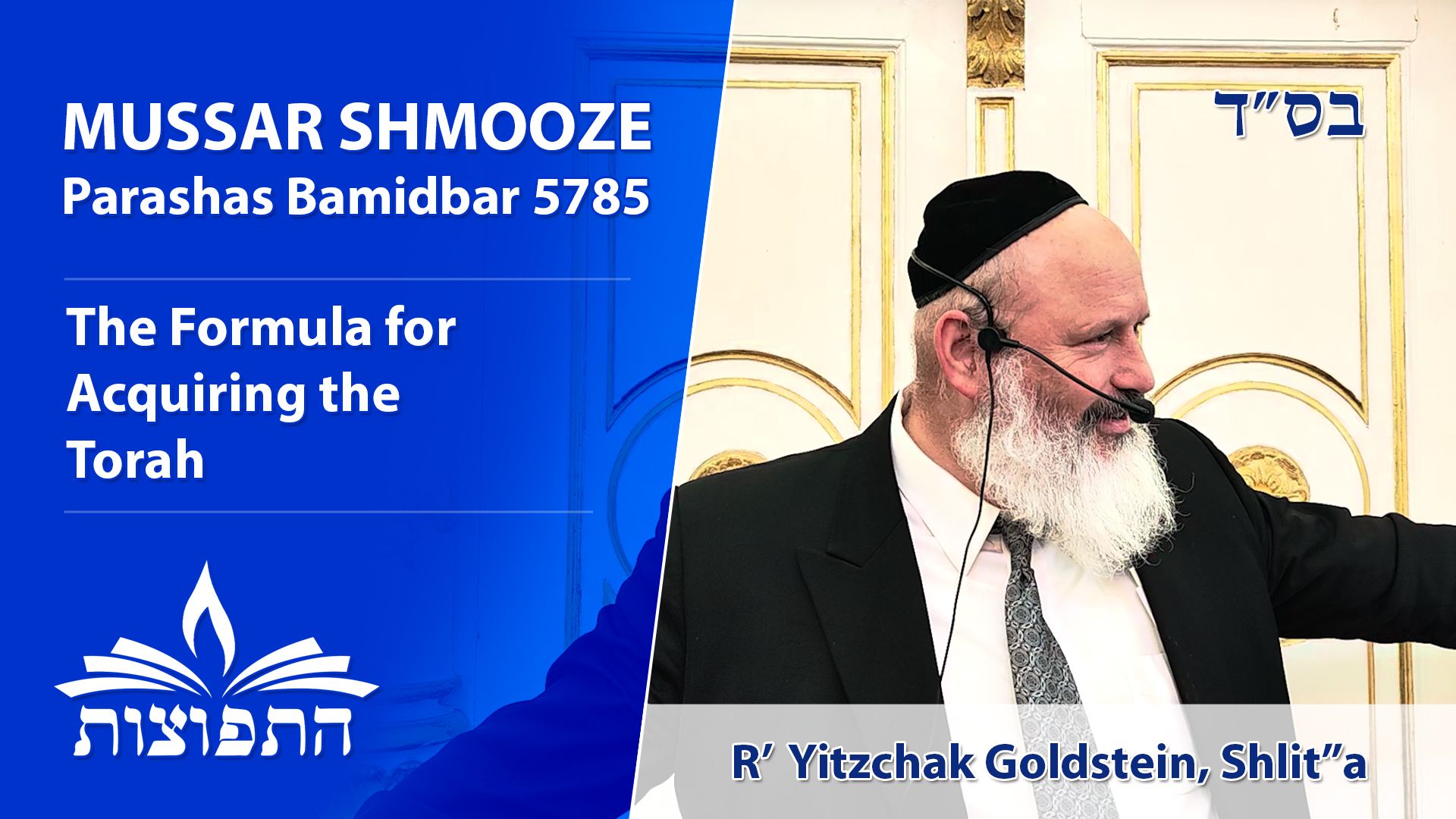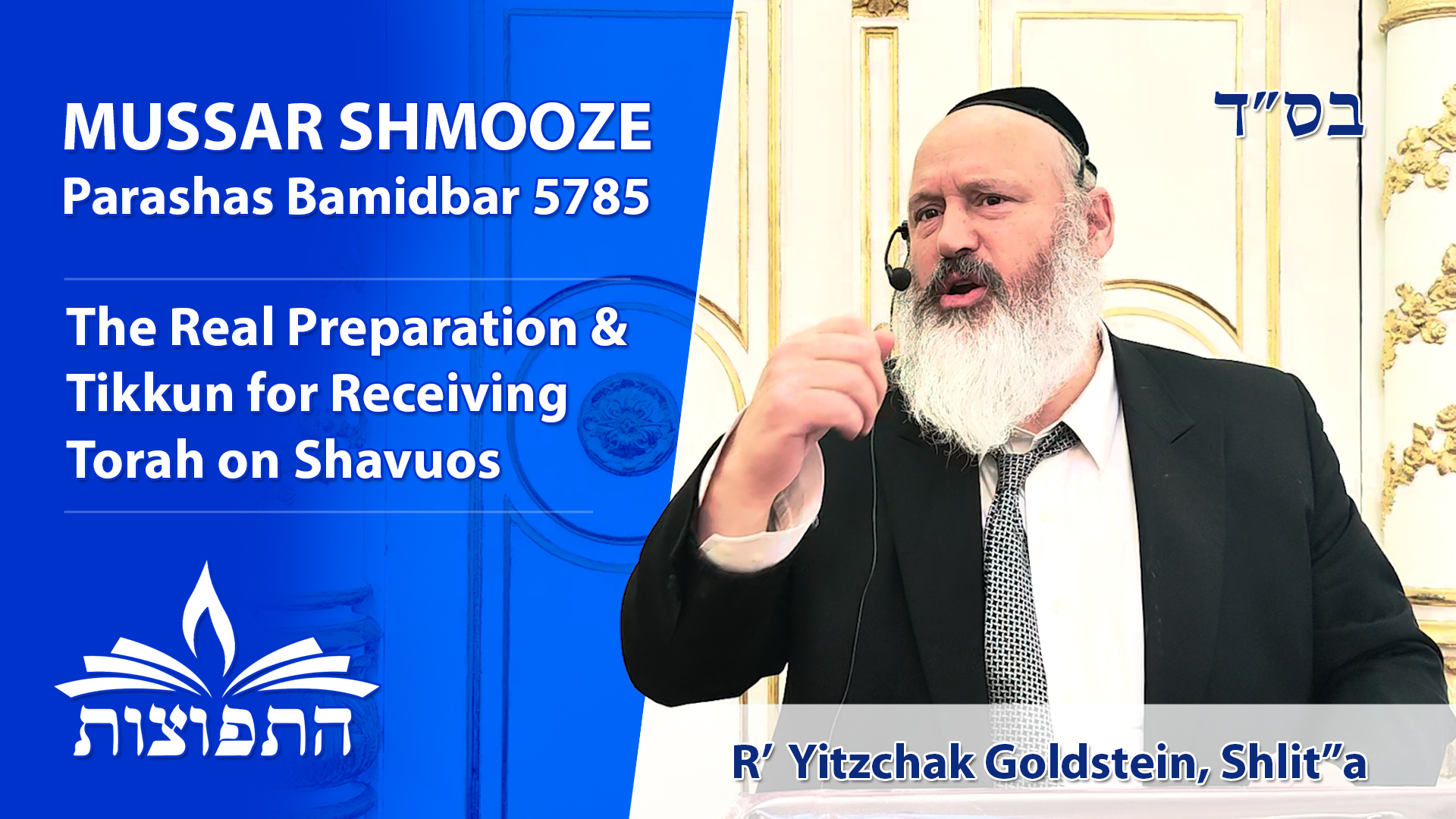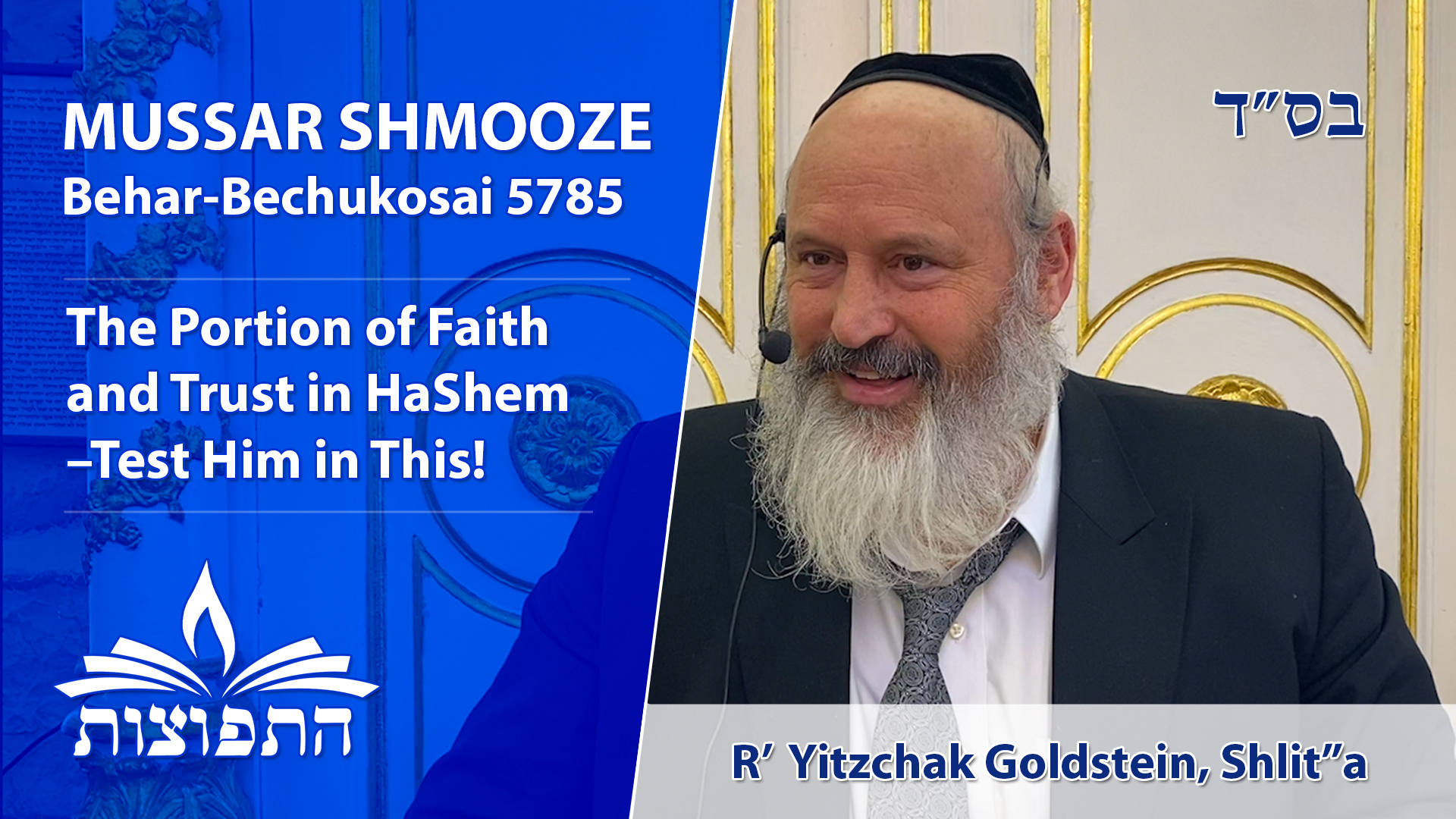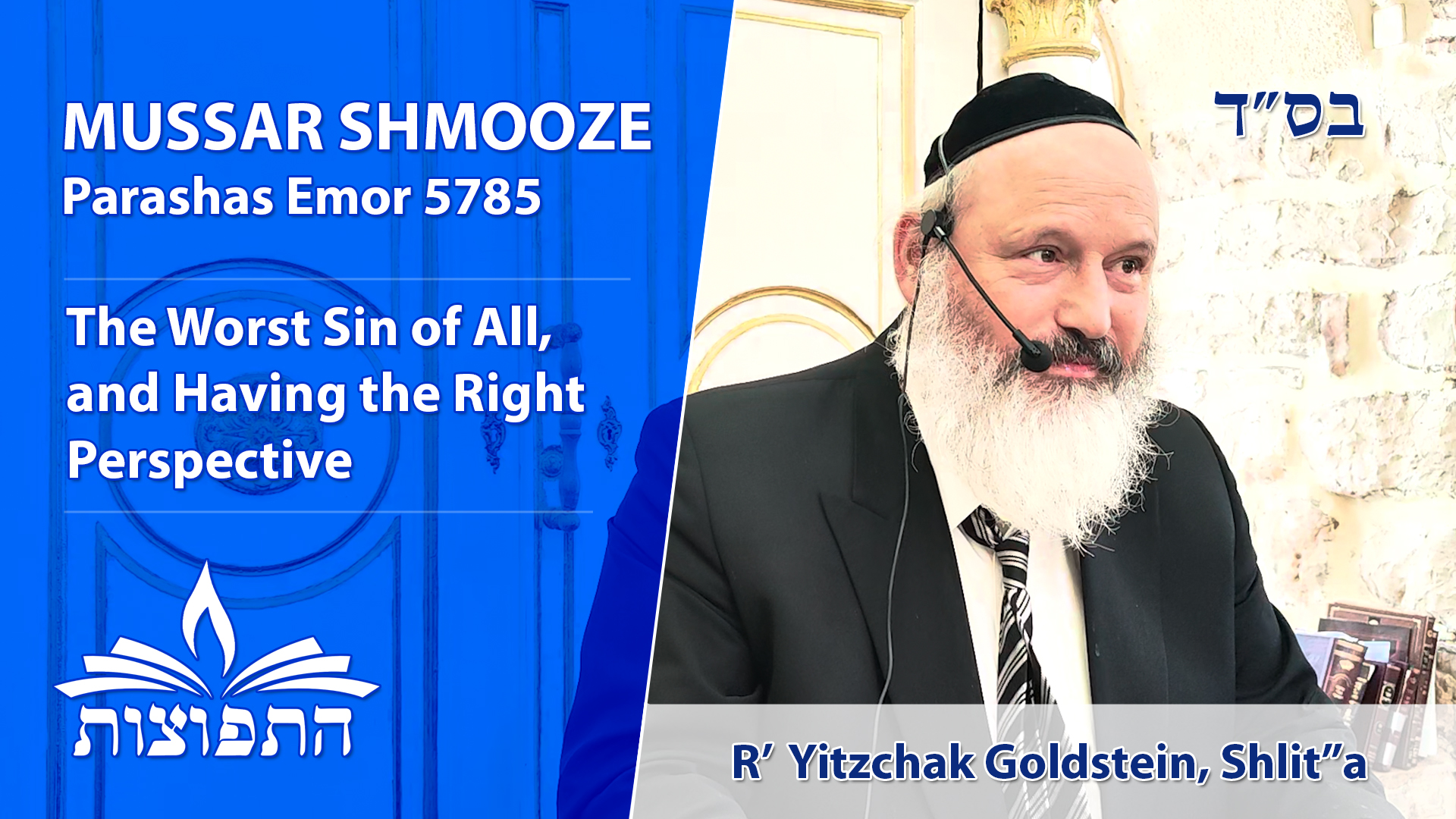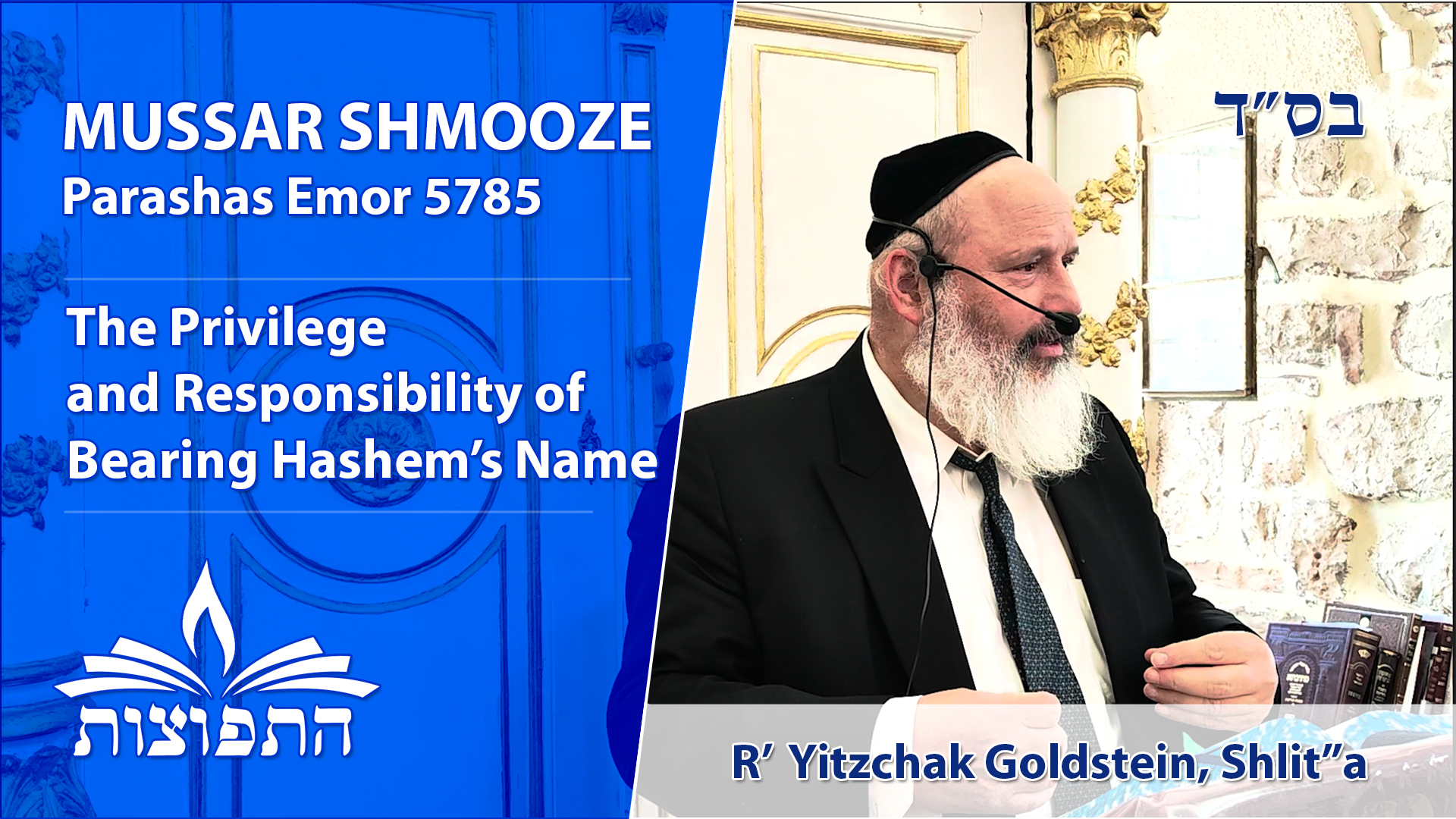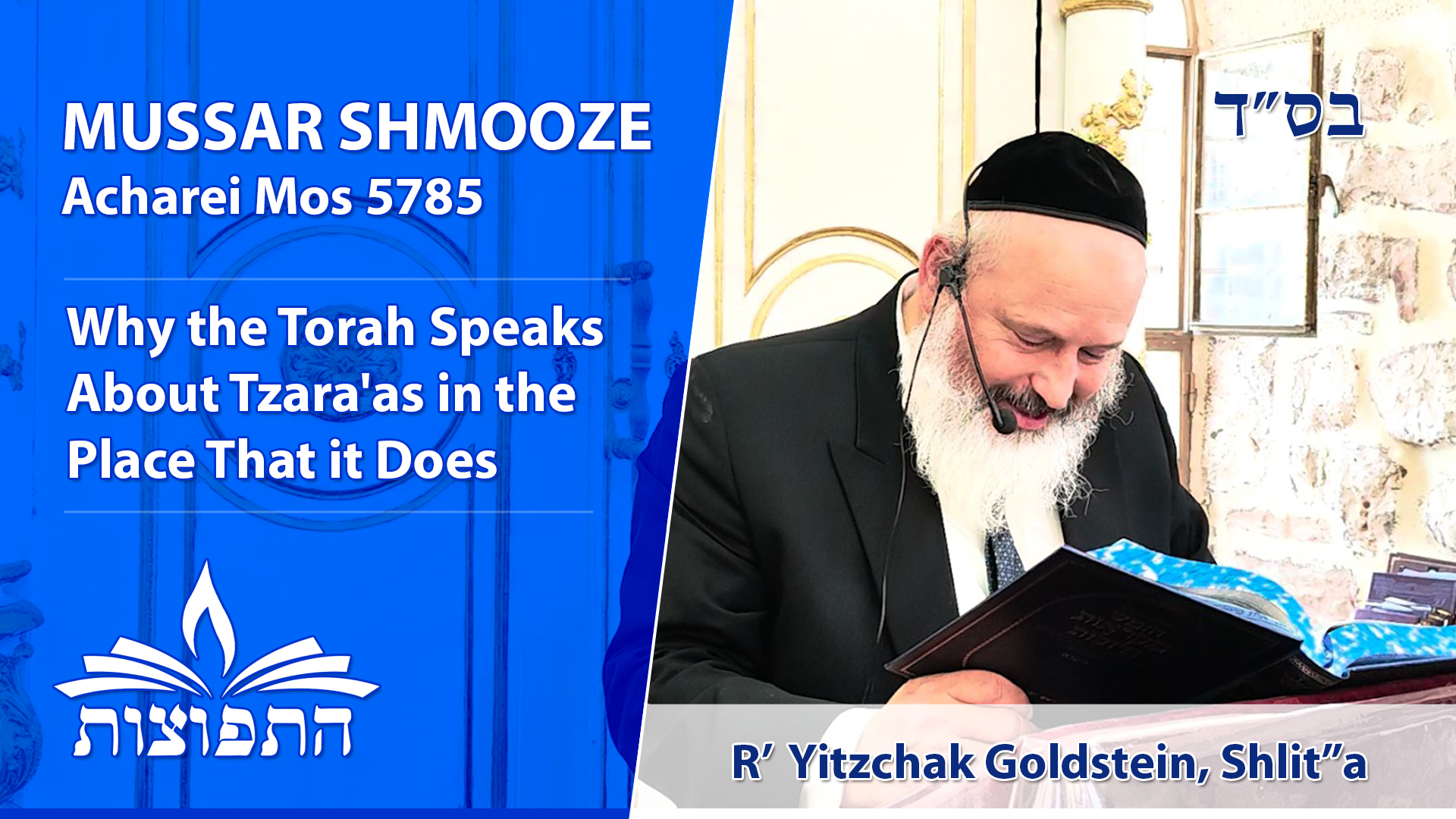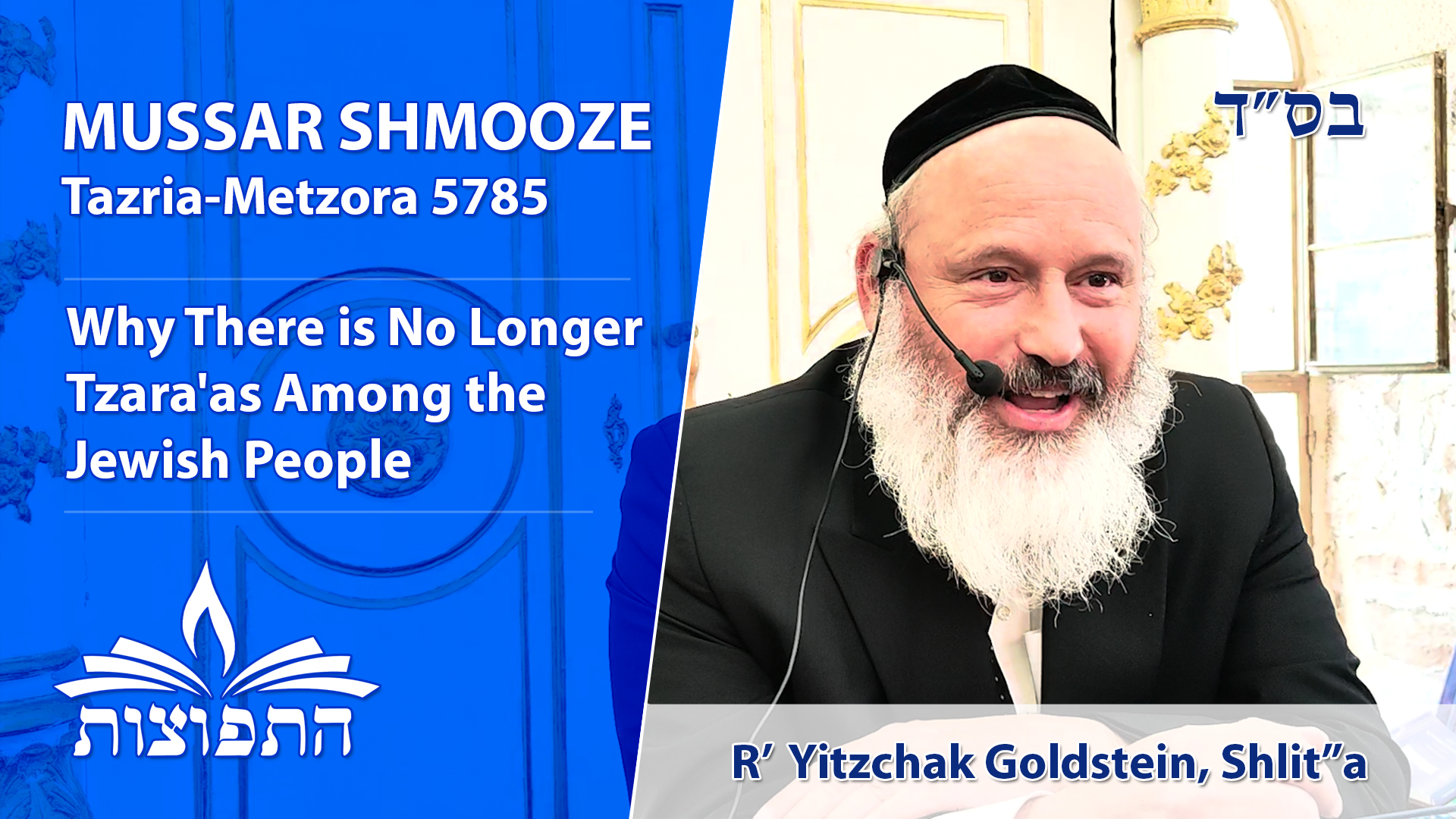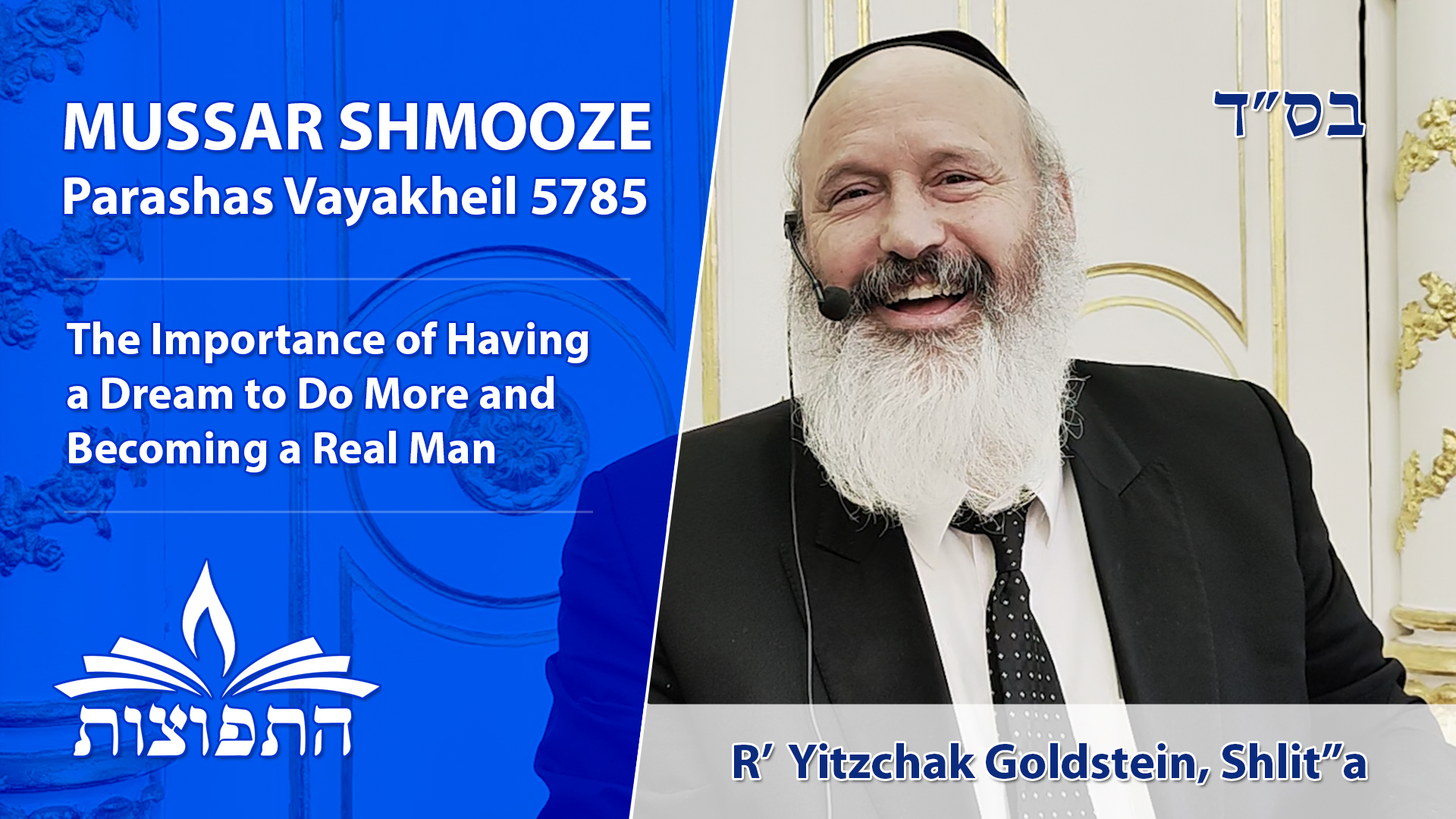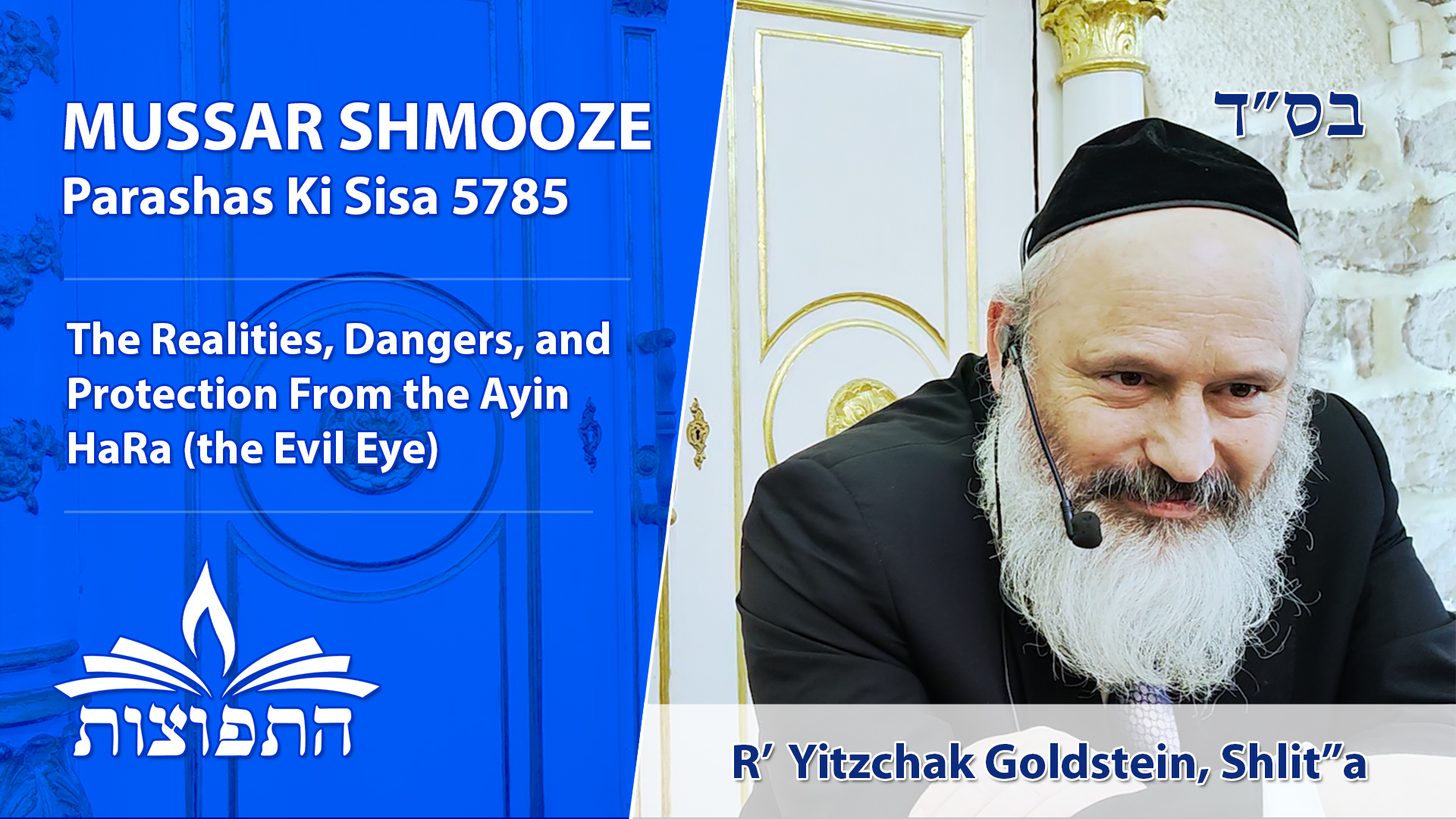The instructions that must be followed to acquire the Torah, the inherent difficulties, and the ultimate satisfaction.
The Rosh Yeshiva gives over the case of two big Rosh Yeshivas, one bigger than the other, but a fundamental difference between them that made one of them wicked, even though he was a tremendous talmid chacham.
A powerful discussion on preparing for Shavuos, including the real goal of the Jewish people and what it means to connect to the highest level through Ameilus HaMachshavah (Exertion of the Mind) in Torah Study, to the best way for a Jew to obtain his parnassa (livelihood), and this unlike the nations.
Two commandments with time-based promises of blessing and wealth—come and know the truth of HaShem!
The Rosh Yeshiva discusses the sin of publicly desecrating the Name of HaShem and how it is atoned for
The Rosh Yeshiva discusses the prohibition in Parashas Emor that prohibits a kohein (priest), a son of Aharon (Aaron), with a physical defect from making offerings to HaShem in the Temple, together with related ideas about the importance of those who are associated with HaShem’s Torah presenting themselves well.
The Rosh Yeshiva discusses and explains a Daas Zekeinim on the significance of the location of the parashiyos (Torah portions) on Tzara’as (“leprosy”) in the Torah, between mentions of the sons of Aharon (“Aaron”) HaKohein (the High Priest)—a serious warning about pride and looking down on others.
The Rosh Yeshiva discusses the spiritual condition of tzara’as (known in English incorrectly as “leprosy”) described in Parashas Tazria-Metzora, its heavenly purpose and use, and why the Jewish people are no longer afflicted with it.
The reason might surprise you!
Torah From Zion The Importance of Having a Dream to Do More and Becoming a Real Man March 20th, 2025 / 20th of Adar, 5785 https://youtu.be/4Qw6guPrPcg The Rosh Yeshiva speaks about the words of Shemos (Exodus) 35:21 in Parashas Vayakheil, …
The realities and dangers of the Ayin HaRa (the Evil Eye), beginning with what the Torah says in Parashas Ki Sisa about counting the Jewish people.

